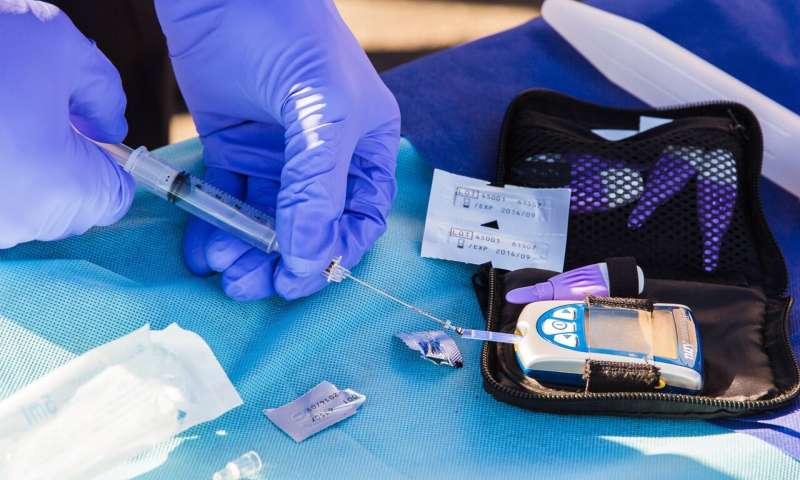New research being presented at the Annual Meeting of the European Association for the Study of Diabetes (EASD), held online this year (27 Sept-1 Oct), suggests that consuming a very low calorie whey protein microgel shot 15 minutes before a meal reduces post-meal blood sugar spikes and improves the body’s insulin response (which clears glucose in the blood) in people with type 2 diabetes.
Whey is one of the main proteins found in dairy products, and is known to increase the production of a gut glucagon-like peptide (GLP-1), a hormone that triggers the production of insulin, that in turn reduces the blood glucose rise after meals. However, its routine use as a natural dietary supplement has been limited by the need for a relatively high protein dose with a high caloric content, and the requirement to take it 30-60 minutes before a meal.
Now researchers have developed new ‘micelle’ technology that allows whey protein to be more rapidly available for the body so it can be taken at a lower dose (10g, 40 kcal) just 15 minutes before a meal.
The study included 26 people (14 women, average age 62 years) with well-controlled type 2 diabetes, some of whom were taking metformin (an oral diabetes medication). The participants were randomized to receive either the new low dose whey protein microgel shot (10g, 40 kcal) in 125ml of water or placebo (125ml of water), followed 15 minutes later by a pizza meal (622 kcal, 29g protein, 22.6 g fat, 72.6 g carbohydrates)—designed to produce an adequate post-meal glucose spike.
Blood samples were taken 15 minutes before the meal, when the whey protein or placebo drinks were consumed, and at regular intervals over 4 hours after the meal.
One week after their initial study visit, the participants were assigned to repeat the trial using the alternate treatment (either the whey protein microgel shot or placebo). The crossover design of the trial also means that the study was statistically well powered despite the small number of participants.
The researchers found that during the 2-hour post-meal period, glucose levels were reduced by 22% in the whey protein group compared with placebo, with a uniform reduction during late phases (between 2 and 4 hours after the meal). Additionally, both insulin response and GLP-1 responses were significantly higher (by 61% at 1 hour, and 66% at 2 hours, respectively) in the whey protein group. However, responses for both peptide-YY (PYY) and glucose-dependent insulinotropic polypeptide (GIP) that also stimulate insulin production were similar between the whey protein shot and placebo. There were no adverse events in this study.
“Our promising results support the use of this pre-meal soluble whey protein microgel as an additional option to improve both the early insulin response and GLP-1 response that is usually lacking in type 2 diabetes, particularly in more advanced stages, and to help control blood sugar surges that are linked to health problems such as cardiovascular disease, cancer, kidney failure, and eye damage”, says lead author Dr. Odd Erik Johansen from Nestle Health Science in Switzerland. “This trial provides us with a really good stepping stone for a longer-term clinical trial to determine the full translational metabolic impact of this natural novel whey protein shot are long lasting.”
The authors note several limitations, including that it was a small study, pilot in nature, conducted at a single center in the U.S., and that most participants in the study were white Caucasians, so the findings cannot be generalized to all ethnic groups in other countries.
Diabetologia


